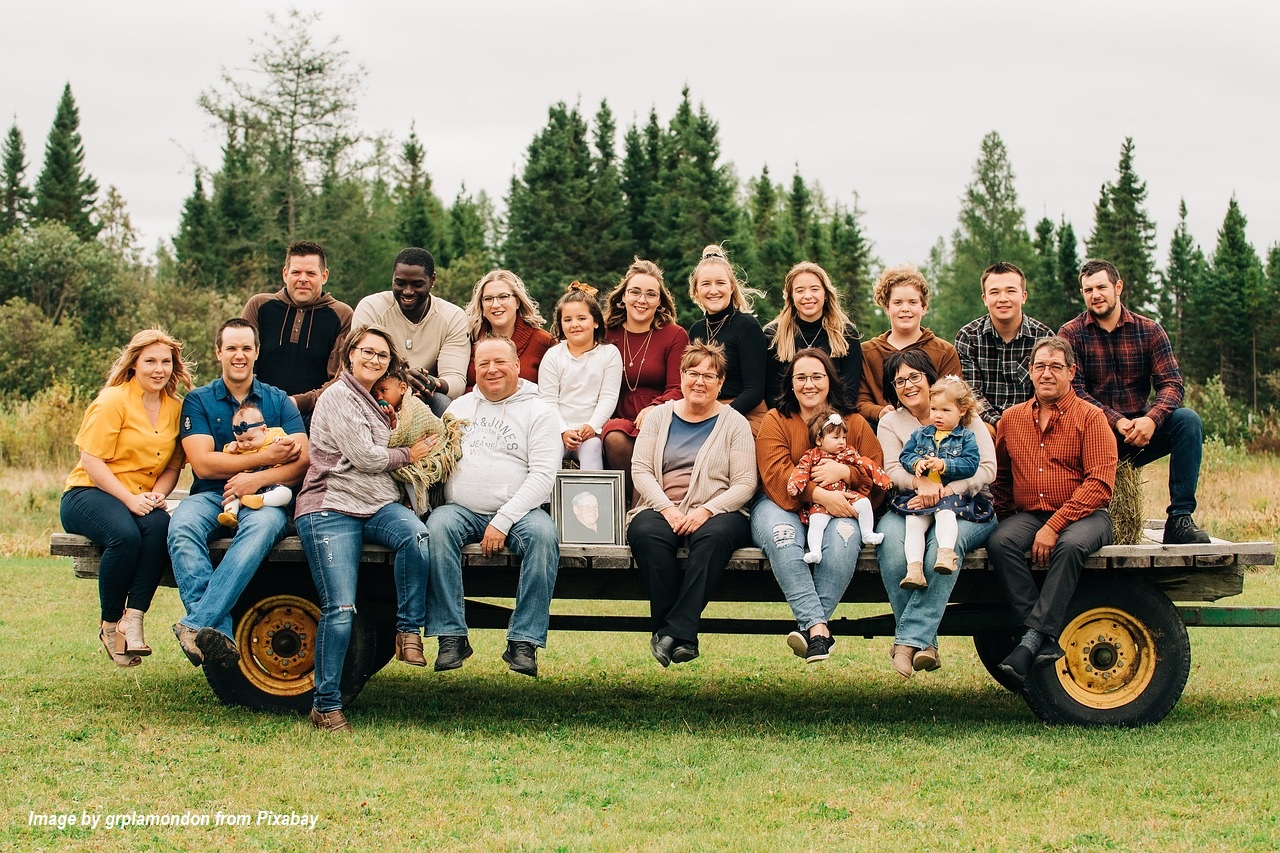In writing hundreds of Grandparenting Articles, two books on Grandparenting, and researching innumerable articles, interviews, and Grandparent anecdotes, I have come up with the following observation.
“LIFE IS COMPLICATED, AND FAMILY LIFE IS A MULTIPLE OF COMPLICATED, AND EXTENDED FAMILY LIFE IS EXPONENTIALLY COMPLICATED. “
Let’s look at that backward since grandparenting comes later in life.

Increasingly
Common

The average extended family in the United States consists of two parents, two children, and two sets of grandparents. The grandparents are typically retired and live close to their children and grandchildren. They often provide childcare and financial and emotional support to their family members.
Extended families are becoming increasingly common in the United States. This is due to several factors, including divorce and remarriage, the rising cost of living, increasing single-parent households, and the aging population. Extended families can provide several benefits for their members, including financial support, childcare, emotional support, and a sense of community.
However, extended families can also be challenging. They can be difficult to manage and sometimes lead to conflict. Communicating openly and honestly with family members is essential to resolve disputes.
Here are some of the challenges of extended families:
- Difficult to manage: Extended families can be challenging to manage. It can be hard to coordinate schedules and activities, and it can be difficult to resolve conflicts.
- Conflict: Extended families can sometimes lead to conflict. This can be due to many factors, including different values, parenting styles, or expectations.
- Privacy: Extended families can sometimes invade their members’ privacy. This can be a problem if family members do not respect each other’s boundaries.

Overall, extended families can be a great source of support and love. However, it is crucial to be aware of the challenges that they can pose. Communicating openly and honestly with family members can help create a strong and supportive extended family.
Here are some tips for managing an extended family:
- Communicate openly and honestly with family members.
- Be respectful of each other’s boundaries.
- Be willing to compromise.
- Be patient.
- Remember that extended families are a work in progress.
You must honestly evaluate where you stand as a Grandparent with each of your extended family units and proceed” With Love and Empathy” in each situation appropriately. I am not saying to roll over and take a bunch of guff, but it is incumbent on us as grandparents to do all possible to create as good of a family unit as we can under the circumstances keeping this one thing in mind, IT IS ALL ABOUT THE BEST INTEREST OF THE GRANDCHILDREN!!!!
Thank You for being a Caring Grandparent.
Recent Posts
Your Grandchildren’s Parents Are Your Bridge to Them
The most important grandparenting relationship isn't with your grandchildren – it's with their parents. When…
Discussing Finances With Adult Children
Half of parents give adult children $1,474 monthly. For grandparents, discussing finances feels impossible. Learn…
Setting Financial Boundaries as a Grandparent
Half of parents provide $1,474 monthly to adult children. For grandparents, setting financial boundaries isn't…
When Good Grandparents Go Wrong
New research on 11,434 children reveals that grandparent-parent alignment matters more than involvement amount. When…
The 11th Commandment: Honor the Parents
The 11th Commandment of grandparenting isn’t “Thou shalt agree with the parents.” It is “Thou…
What on Earth is an Upside-down Hug?
A simple, silly ritual like an Upside-Down Hug can create lifelong memories. Grandparents who build…